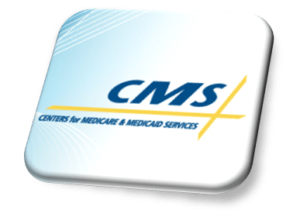 Before the Centers for Medicare & Medicaid Services (CMS) issued a final rule expanding and updating Conditions of Participation (CoPs) for home health agencies (HHAs) early in 2017, those conditions had stood without major revision for almost two decades. The new rule was slated to take effect in mid-July of this year.
Before the Centers for Medicare & Medicaid Services (CMS) issued a final rule expanding and updating Conditions of Participation (CoPs) for home health agencies (HHAs) early in 2017, those conditions had stood without major revision for almost two decades. The new rule was slated to take effect in mid-July of this year.
However, providers and HHAs, worried about lining up resources needed to become fully compliant in just six months, asked the government to consider a wider span between rule finalization and rule implementation. In a recently-released rule, the CMS has proposed a six-month delay in implementing the new CoPs, which would put the effective date at January 13, 2018.
In reference to public comments regarding the final rule for CoP implementation and the reason for the delay, the CMS said, “We believe that the concerns expressed in the inquiries have merit.”
In addition to the delay in updated CoP rule fulfillment, the CMS is proposing to similarly postpone the effective date for data-driven performance improvement projects to January of 2018.
July 2017 implementation date “not realistic”
The overall pricetag for HHAs to fully implement the new requirements is estimated to nudge past $293 million in the first year, and over $290 million in years following. According to the National Association for Home Care & Hospice, which supports the proposed postponement, the average estimated cost of an individual HHA to align with the new CoPs is $30,000.
“We are very pleased that CMS has proposed to extend the effective date of the CoP rule,” Bill Dombi, vice president for law at NAHC, told Home Health Care News. “NAHC had requested the extension after 75% of our members indicated that compliance by the planned July 13, 2017 date was not realistic. Given that the rule was in development for 20 years, it is appropriate to set a reasonable compliance deadline. We are now headed in that direction.”
Visiting Nurse Associations of America “applauds” postponement
Another group that supports delaying the new CoPs until 2018 is the Visiting Nurse Associations of America (VNAA), stressing that CMS’s yet-to-be-released guidance on how the rules are to be interpreted is a critical piece still missing.
“VNAA applauds the delay announced by CMS, as we had previously called for CMS to release the CoP Interpretive Guidelines not later than March 8, 2017,” Joy Cameron, vice president of policy and innovation at VNAA, told Home Health Care News.
Cameron continued: “VNAA believes these guidelines are critical to effective implementation and should be supported by significant CMS outreach and education efforts. The Interpretive Guidelines are regularly used by home health agencies, state survey agencies and accreditation agencies to better understand the CoPs, and have been an essential tool to ensure appropriate implementation and compliance.”
Letter to new CMS administrator
Among the legislators addressing providers’ request for more time to comply is New York Congressman John Faso. Faso sent CMS Administrator Seema Verma a letter late last month urging the agency to push back the new CoP effective date. The Home Care Association (HCA) of New York had worked with Faso to draft the letter, an excerpt from which reads:
“Home care providers understand the rationales and goals of the CoP changes, and they report vigorous and hurried efforts to get their staff trained and ready. Moving back implementation by six months will allow for all parties involved to be better prepared to operate and ultimately provide quality care to home care beneficiaries.”
Although the updated CoP rule was met with overall positivity from the home health industry, the overarching consensus was that more time was needed to comply. Additional training, new quality assessment and performance improvement (QAPI) provisions, a patient bill of rights, and new administrative requirements are among the new CoPs.
The rule for the CMS’s proposed delay comes with a public comment period of 60 days.
This blog post is provided for educational purposes only and is not offered as, and should not be relied on as, legal advice. Any individual or entity reading this information should consult an attorney for their particular situation. For more information/questions regarding any legal matters, please email [email protected] or call 310.203.2800.